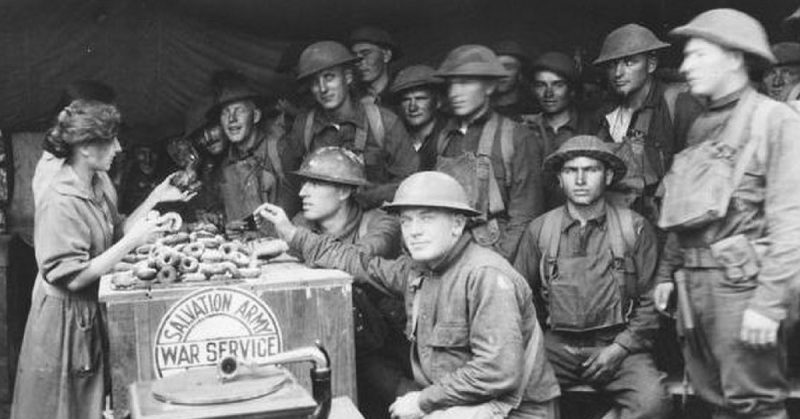The Donut Girls of WWI
Though the donut is a staple in many different cultures’ cuisines, it is of particular importance to Americans. The history of the American fixation on donuts began nearly one hundred years ago in rural France. WWI, also known as the Great War, was a war centered in Europe involving several significant economic world powers and lasting from 1914 to November 11, 2018.
It began due to a conflict between Austria-Hungary and the Kingdom of Serbia. Due to diplomatic ties with both the opposing nations, all the major powers of Europe were at war within weeks. Soon the conflict would spread all over the world. Though a short war, the destruction and violence resulting from it affected an entire generation of men, known as the Lost Generation.
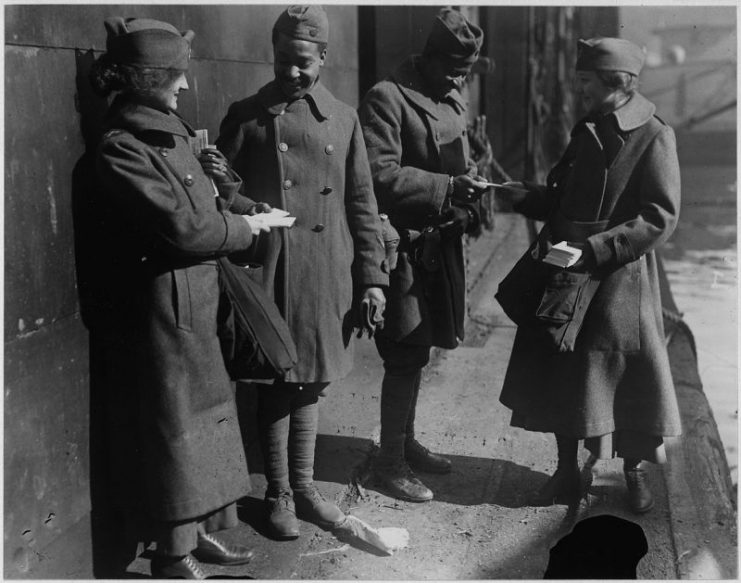
Over 16 million people were killed as a consequence of the war, with the casualty rate even higher. The violence was exacerbated by the use of technologically advanced weapons, such as tanks and mustard gas, and the deadlocking tactic of trench warfare.
It took many years for Europe to recover from the devastation leading to many political changes and national revolutions.
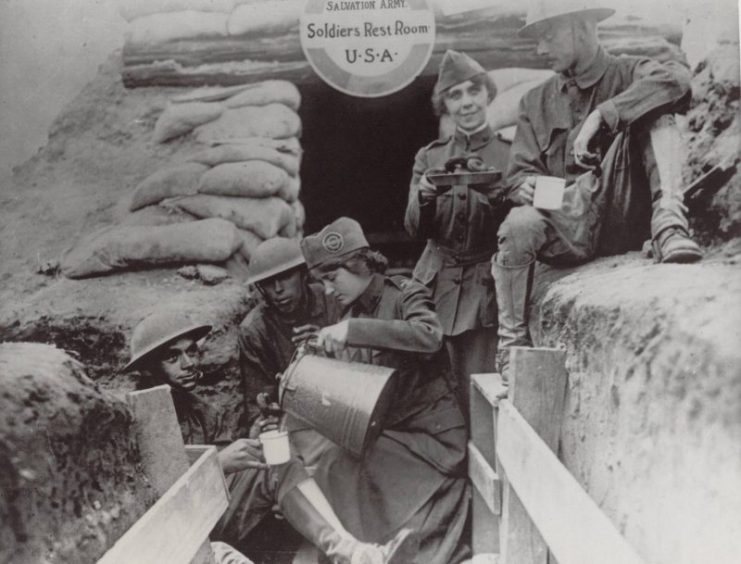
The Salvation Army and the Donut Girls
The Salvation Army is an international, charitable Christian organization. They operate in a quasi-military fashion with uniforms and working official military rankings.
However, their mission, as God’s Army, is to bring salvation to the poor and hungry by meeting their physical and spiritual needs. So, it came as no surprise when the co-founder of the Army, Evangeline Booth sent a representative to Europe.
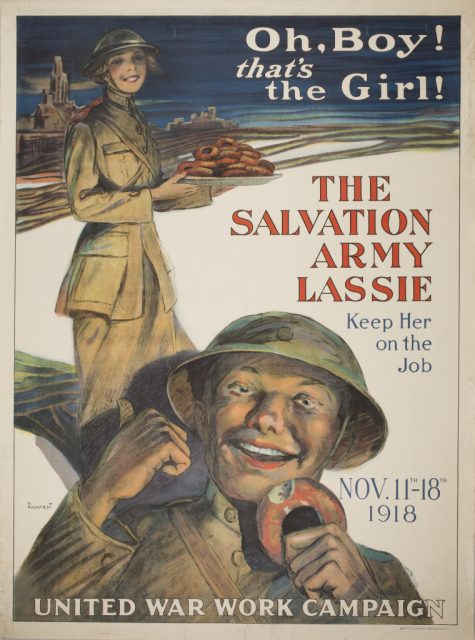
She wanted to know how the Salvation Army could help the troops abroad. When Lt. Colonel William S. Barker arrived in France, he reported back that many of the troops who expected to be sent to the front lines were actually waiting for orders and keeping themselves busy with manual labor.
Morale was down. He reported back, “SEND OVER SOME LASSIES” in his final message. Booth arranged for a group of 11 volunteers to go and service the American soldiers in France. When they arrived, they set up service centers and hostels near the military camps.
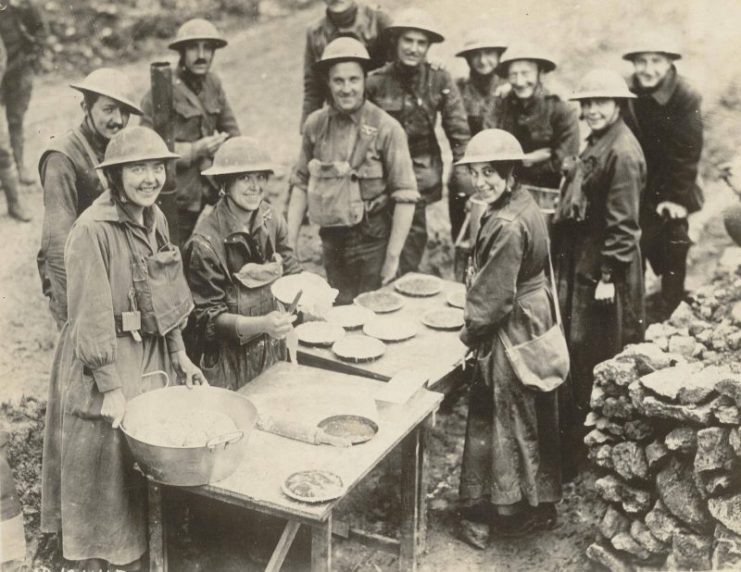
They became a source of solace during these war-torn times. Soon, Salvation Army huts sprang up anywhere American troops were stationed. Some were even reported to be at the front lines, exposing the volunteers to shells shrapnel, even toxic gas.
During a cold day in October 1917, two of these volunteers, Helen Purviance and Margaret Sheldon, searched their stores for something to lighten the mood. They had experienced 36 days straight of rain, which covered them and the soldiers in a blanket of depression.
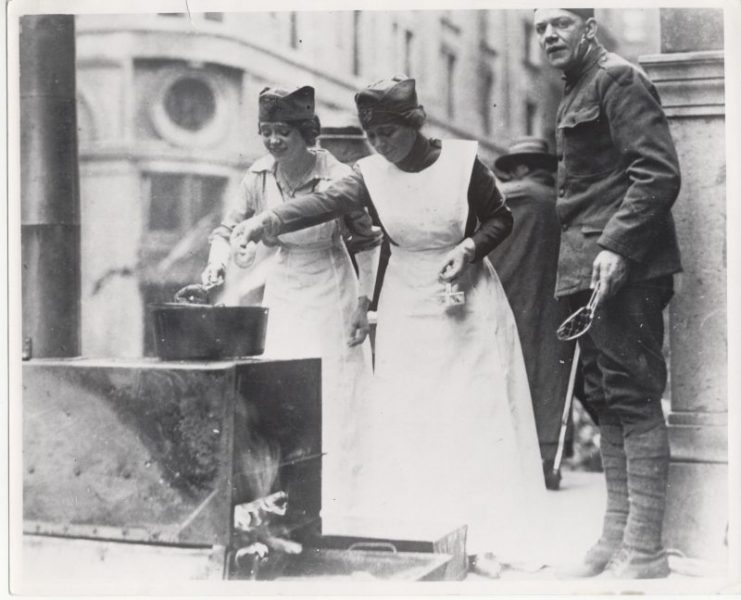
The boys needed some good old home cooking. However, most their supplies had run out, and it was hard to replace them locally. With only flour, sugar, lard, baking powder, cinnamon, and canned milk Purviance and Sheldon thought hard about what they could make. For pancakes, they needed to be warm and eaten with syrup, which they did not have. Perhaps donuts?
Without any actual cooking utensils, the women made the donuts by hand. An old wine bottle served as a rolling pin. They cut the dough into long strips and twisted them into crullers. Purviance kneeled in front of the wood-burning stove, tending the fire, as Sheldon fried the donuts, seven at a time.
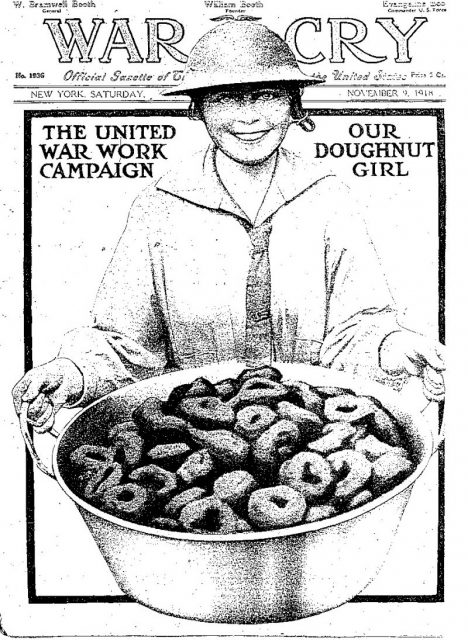
Soon, the smell of freshly made doughy goodness spread through the neighboring camps. By the end of the day, they had served 150 donuts. The next day, they made twice as many. After some time and with makeshift utensils, Purviance and Sheldon, along with other lassies along the frontlines, easily made 2,500 to 9,000 donuts a day.
Soldiers cheered as the Donut Girls arrived at their camps. The donut became a symbol of comfort for thousands of American troops abroad, staying true to the Salvation Army’s mission.
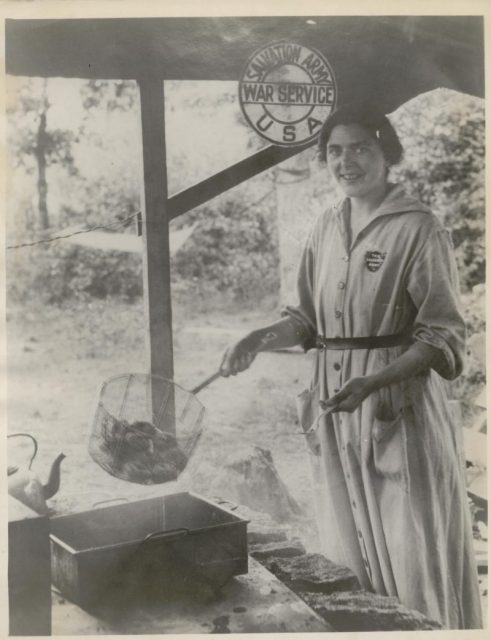
National Donut Day
In 1938, during the Great Depression, the Salvation Army celebrated the first National Donut Day in Chicago.
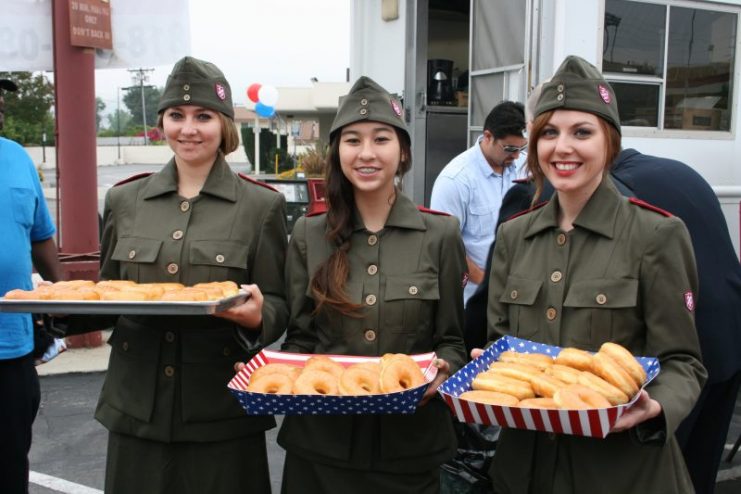
They wanted to commemorate the Donut Girls and to raise donations and bring awareness of their social service programs while the US faced hard times economically. To this day, we continue that tradition. The U.S. has dedicated an entire day to the fried dessert for more reasons than it’s tasty appeal, but in remembrance of the service to U.S. soldiers during some extremely difficult times.
National Donut Day comes from compassionate and charitable beginnings. Hopefully, the next time you take a bite of your chocolate glazed jelly filled donut, you will remember the Donut Girls and their devotion to caring for the upright American soldiers during WWI.
